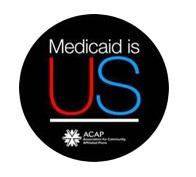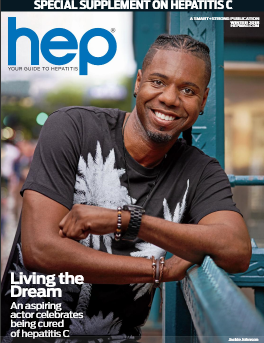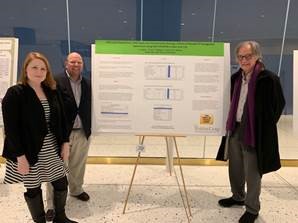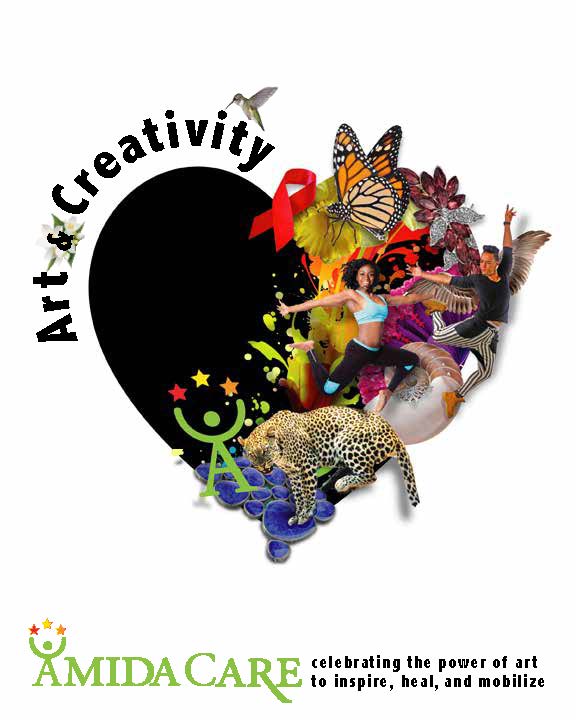
Fall/Winter 2018
As 2018 draws to a close, Amida Care looks to 2019 with hope for continued efforts to End the HIV/AIDS Epidemic (EtE). We are encouraged by new data showing continued decreases in new HIV diagnoses in New York. We are also heartened that protecting health care access was a top priority among voters.
The congressional election outcome creates an important check against the Trump administration's efforts to dismantle the Affordable Care Act (ACA), Medicaid, and other health care programs that support low-income Americans. In New York State, a new Senate sets the stage to enhance EtE efforts, expand access to health care, and protect lesbian, gay, bisexual, transgender and gender non-conforming (LGBT+) residents from discrimination.
Even with these federal- and state-level changes and the new opportunities they bring, remaining active in the fight for health care rights and access is essential. The new political environment creates a framework for change, but advocacy must continue to ensure health care access for all.
|
 |
Impact of Midterm Election Results 
Federal: U.S. Senate remains Republican, U.S. House of Representatives flips to the Democrats
The changes at the federal level of government will directly impact Medicaid, the ACA, and LGBT+ rights. The new Democratic-controlled House of Representatives is unlikely to propose ACA repeal measures and will have oversight authority over the Center for Medicaid and Medicare Services (CMS), the federal agency that controls Medicaid.
- Democrats gained a net of at least 40 seats for a majority of 235 Democrats to 199 Republicans, with one North Carolina race still undecided.
- Republicans picked up a net of two seats in the U.S. Senate and will retain control, with a 53 (R) to 47 (D) majority.
- The 116th Congress will have the greatest racial, gender, and religious diversity in U.S. history.
New York State: All statewide offices are now held by Democrats, Senate flips to Democratic control
- All statewide offices will be held by Democrats including Governor Andrew Cuomo, Lieutenant Governor Kathy Hochul, Comptroller Thomas DiNapoli, and Attorney General Letitia James. James will be the first African American woman elected to statewide office in New York.
- The new Senate majority leader Andrea Stewart-Cousins will become New York's first female legislative leader.
NYS Legislative Action to Protect Access to Health Care
New York State's new Democratic-led Senate opens the possibility that previously stalled legislation will finally move forward. We are working to help accomplish the following:
- Pass the Gender Expression and Non-Discrimination Act (GENDA) (A.3358, Gottfried and S.0710 Hoylman). The Trump administration has embarked on an effort to effectively erase transgender and gender non-conforming (TGNC) people by changing regulations that exclude them from protections against discrimination in health care. The executive orders and regulatory changes to protect NYS TGNC people against discrimination have moved us in the right direction but don't go far enough. GENDA will legally codify protections for TGNC people against discrimination in employment and health care.
- Pass Assembly Member Danny O'Donnell's bill, A.05001: legislation that would curtail the so-called "gay panic" and "trans panic" defenses for violent crimes against the LGBT+ community.
Ask your state legislators to bring these bills to a vote. In NYC call 311 to find your Assembly Member and State Senator. Find your representative
|
 |
|
Ending the Epidemic: New York State Update

HIV Diagnoses Reduced, But Rate of Reduction Slows
New York State's latest HIV
data
continue to show a decline in new HIV diagnoses, bringing the goal of Ending the Epidemic by 2020 closer to becoming
a reality
. In New York City, HIV
surveillance data
also demonstrate continued decline in diagnoses--50% between 2006 and 2017. Despite this tremendous progress, it is clear that more work remains as diagnoses in NYC fell in every demographic
except
among transgender people, the Latinx community, and Asian/Pacific Islanders. The overall rate of decrease slowed from a 8.6% decline in 2016 to a 5.4% decline in 2017. African American and Latino men who have sex with men, women of color, and transgender people continue to be over-represented in new diagnoses and among people with unsuppressed HIV.
Expanding Access to Medicaid Special Needs Plans (SNPs)
New York should use all available tools to end the HIV epidemic. To fully realize this goal, we must move quickly on all fronts to expand access to essential services to men of color who have sex with men, transgender women, women of color, and injection drug users. These populations are at higher risk for HIV acquisition, and they face significant health disparities; by connecting them to HIV prevention methods like PrEP and PEP, we can
accelerate the reduction of new HIV infections
.
Medicaid Special Needs health Plans (SNPs) like Amida Care have expertise in working with populations living with and at higher risk for HIV and are uniquely qualified to provide
enhanced sexual health services that will help HIV negative people remain negative, including access to PrEP, comprehensive care coordination, HIV screening, and behavioral health services.
 Amida Care has asked the NYS Department of Health to allow SNPs to expand eligibility and provide their care
management services to all populations at higher risk for HIV by April 2019. This request is supported by the EtE Coalition, the NYC Council Speaker, and 31 other Council Members. Amida Care has asked the NYS Department of Health to allow SNPs to expand eligibility and provide their care
management services to all populations at higher risk for HIV by April 2019. This request is supported by the EtE Coalition, the NYC Council Speaker, and 31 other Council Members.
How You Can Help
Please join our advocacy! Ask the New York State Commissioner of Health Howard Zucker and AIDS Institute Director Johanne Morne
to allow SNPs to provide their comprehensive care coordination and sexual health services to all Medicaid recipients at elevated risk for HIV by April 2019.
Email Commissioner Howard Zucker or call 518-474-2011
Email Johanne Morne, Director of the New York State AIDS Institute
|
 |
Ending the U.S. HIV Epidemic and Protecting Health Care Access
A Roadmap for Federal Action
Amida Care is joining the Act Now End AIDS coalition, AIDS United, and 250 organizations from across the country to call on the U.S. government to declare an official goal of ending the domestic HIV epidemic by 2025. We urge enactment of legislative and regulatory policies along with sufficient funding to achieve this goal. Experience and evidence demonstrate that a focus on the following action items will lead to a drastic reduction in new HIV cases; improve the length and quality of life for people living with HIV; and reduce opioid misuse, viral hepatitis, sexually transmitted infections, and tuberculosis.
- Commit to ending the U.S. HIV epidemic and eliminate HIV health disparities
- Ensure broad and equitable access to effective HIV care and treatment
- Prevent new HIV transmissions
- Address social and structural barriers to effective HIV prevention and care
- Maintain U.S. leadership in lifesaving research
- Support the meaningful involvement of people living with and vulnerable to HIV
Protecting Access to Medicaid
Medicaid is critical to EtE efforts because it provides access to care for 40 percent of the 1.1 million people living with HIV in the U.S. Loss of coverage, as occurred in Arkansas, is deeply concerning because Medicaid actually helps people to work. More than 60 percent of those on Medicaid already work but
their employers don't offer health insurance or they don't earn enough to afford health insurance on their own. The 40 percent who don't work either can't work, are in school, or are taking care of a family member.
The Arkansas work requirement approved by t
he Centers for Medicare & Medicaid Services (CMS) denies low-income Americans access to health care when they need it most. This is why we need greater oversight of CMS. Among the many deficiencies of the program, onerous reporting requirements mean that even people who are working will lose health coverage because they cannot navigate the bureaucratic hurdle of demonstrating that they work.

In response to an article in the
New York Times about Arkansas' attempt to implement Medicaid work requirements, Amida Care President and CEO Doug Wirth's letter to the editor, "
Medicaid's Work Requirement: A Medicaid special-needs health plan takes issue with Arkansas' move," was published on October 6th. The letter points out that Medicaid recipients already face barriers to getting care, and adding work requirements that take their coverage away puts the health of vulnerable Americans at risk. Implementing work requirements in Arkansas caused more than 12,000 people to lose their Medicaid coverage.
Protecting the 340B Program
The Trump administration is attacking the
340B program, which lowers drug costs for Ryan White clinics, community health centers (CHCs), family planning clinics, and hospitals. This program requires drug makers to reduce their prices through discounts ranging from 20 to 50 percent. Enacted in 1992, it has had strong bipartisan support for most of its history. But the past year has been marked by a series of attacks that have eroded the program's buying power and could threaten CHCs or hospitals serving low-income patients.
To learn more about threats to the 340B program, visit
AIDS United.
Keep Our Communities Healthy: Helping Immigrants Retain Access to Health Care
Amida Care submitted comments on December 7th urging withdrawal of a new rule from the
The Department of Homeland Security--a proposed regulatory
change that would foster fear in immigrant communities and threaten to take away health care. The proposed public charge rule would create insurmountable barriers for immigrants and citizens to access and use Medicaid and other public benefit programs for which they are lawfully eligible. It will also lead to the loss of
Medicaid--and possibly CHIP--coverage for tens of millions of individuals, many of whom are likely to become uninsured.
|
Amida Care Events and News
 On December 3
, HEP Magazine
published a cover story feature on Amida Care member and Office Assistant Jackie Johnson. In the feature, "Living the Dream," Jackie shares his
inspiring story of accessing health care through Amida Care to get treated and cured of On December 3
, HEP Magazine
published a cover story feature on Amida Care member and Office Assistant Jackie Johnson. In the feature, "Living the Dream," Jackie shares his
inspiring story of accessing health care through Amida Care to get treated and cured of
Hepatitis C.
****************************************************************
On December 4 and 5, Amida Care joined advocates, health care leaders, and elected officials from across the state at the 2018 Ending the Epidemic Summit at the Empire State Plaza Convention Center. We presented two poster sessions: "Viral Load Suppression of Members Enrolled in a Medicaid Special Needs Plan (SNP) in New York City: A Cohort Analysis" and "Viral Load Suppression, CD4 Count, and Comorbidities Among a Cohort of Persons of Transgender Experience Living with HIV/AIDS in New York City." The research illustrates the power of Amida Care's unique model of care to partner with community-based organizations and primary care providers to improve rates of viral load suppression among plan members. We also led two breakout sessions: "Employing Consumer Workers to Reach ETE Goals: Developing and Implementing Successful Peer Programs" illustrated peer workers' powerful ability to use their experience to assist others in improving their health; and "Developing a Comprehensive Transgender Health Program within Medicaid Managed Care" detailed services that Amida Care offers to address the unique needs of transgender individuals. Read more
 
*******************************************************************************************
On November 28, to mark
World AIDS Day 2018 (Dec. 1),
Amida Care, the National Black Leadership Commission on AIDS (NBLCA), representatives from Brooklyn Borough President Eric L. Adams' office, and Assembly Member Walter T. Mosley gathered at the
Brooklyn Public Library to raise awareness around ending the HIV/AIDS epidemic in Brooklyn. Throughout the day, representatives of Amida Care,
NBLCA, and
Bridging Access to Care distributed information and resources to the public about HIV prevention and treatment. Bridging Access to Care also provided free HIV testing. The event highlighted the power of art as a means to break down stigma around HIV/AIDS, highlighting our special community magazine,
Art & Creativity, and the event featured artwork from community members living with HIV. Amida Care's VP of Member Experience and Ombudsperson,
Stephane Howze, was among the
local leaders, community members, and health care providers who made remarks at the press conference, which was covered by the
Brooklyn Reader (34,000 readers),
Gay City News (100,000 readers),
My Social Good News (8,300 readers),and
News 12 Brooklyn.
 **************************************************************** ****************************************************************
Our special community magazine, Art & Creativity, celebrates the power of the creative arts to heal, inspire, and mobilize. The magazine highlights stories of photographers, pianists, actors, writers, and others whose work often moves and delights us while also raising awareness of ongoing efforts to end the epidemic. These trailblazing artists keep finding novel ways to motivate us as we continue to combat HIV/AIDS. Read the magazine in
English
or in
Spanish
.
|
|
|
|
|